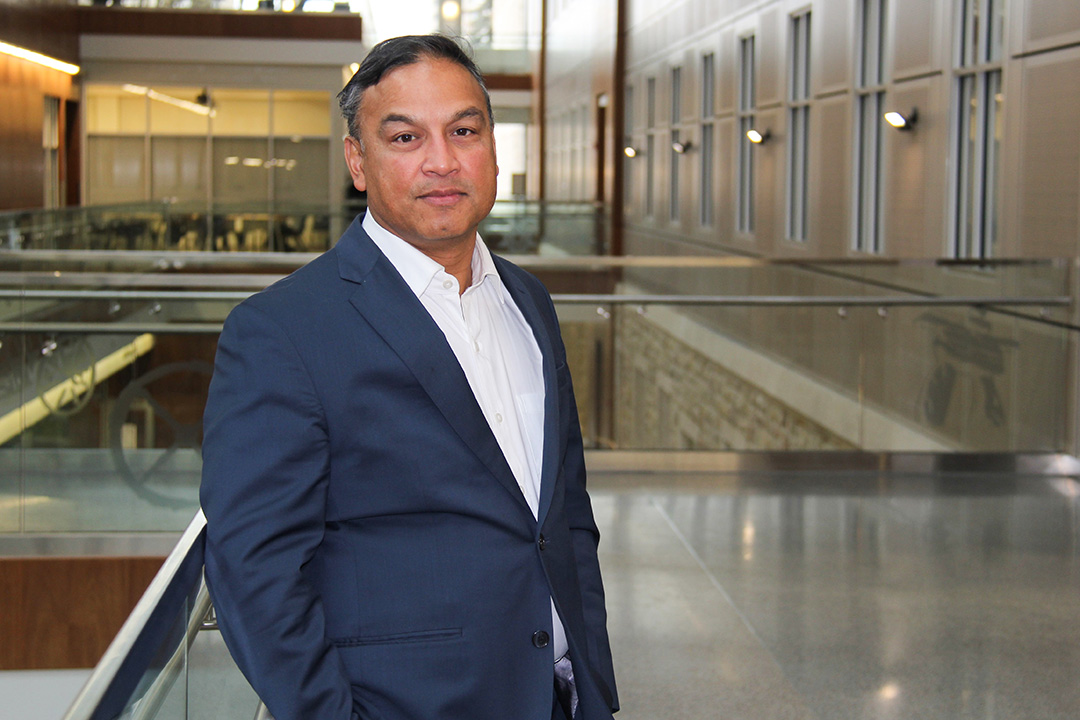
His father's son: Nazeem Muhajarine connects the coronavirus and human behaviour
The way people perceive threats in a pandemic affects the spread of COVID-19, according to social epidemiologist Dr. Nazeem Muhajarine (PhD).
By Researchers Under the ScopeListen to all episodes of Researchers Under the Scope podcast.
Subscribe to the podcast on Spotify or Apple Podcasts.
Since he was a boy, he's studied the way government interventions really work, from the perspective of citizens who have to live with them.
“With schools back in session and winter coming back to the prairies, we cannot be complacent,” he said.
Muhajarine is analyzing more than 5,400 responses by Saskatchewan residents in his study of Social Contours and COVID-19.
In this episode, Muhajarine explained why he left medical school for a career in public health research, why politicians' words and actions can alter infection rates, and why he strives to treat every person he meets in his research with dignity.
After tracking Saskatchewan people for five months during the Covid-19 pandemic, Muhajarine said half of respondents initially said they were taking the threat of the virus seriously — a number that increased to just over 62 per cent by the end of August.
At that point, more than 8 out of 10 respondents said they were ‘very concerned’ about spreading the virus, although fewer than half felt people around them were following health recommendations.
By the end of the summer, Muhajarine’s team also found fewer people believed Saskatchewan's provincial government was taking the right steps to contain the virus, falling from 77 per cent of respondents who agreeing in early May, to just 45 per cent at the end of August.
He said those perceptions matter.
“This is so important,” said Muhajarine, citing the need for clear, consistent communication from elected officials and bureaucrats. “If I was in the government, this would be a huge concern for me right now.”
Muhajarine, the director of the Saskatchewan Population Health and Evaluation Research Unit, said authorities must lead by example.
It’s a lesson his own father taught him, in both word and deed.
“Walk the talk. If you’re saying people should be wearing masks when they cannot physically distance, you better show it by wearing a mask yourself,” said Muhajarine.
Article re-posted on .
View original article.

